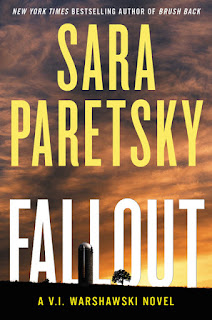| Jan Grape |
Despite what some in our country have said or even still say, and despite the public's lack of remembrances on D-Day and Pearl Harbor Day, the 7th of December, I still like to remember and honor WW-II veterans. Maybe because it's been over 82 years since Pearl Harbor was bombed. While the wars afterwards, like Korea, Viet Nam are in the distant, 70 and 48 years ago, respectively, too many people think of them as ancient history. My children, grandchildren, and great-grandchildren should all know of those historical days and learn about things that happened during my father's life-time and my life-time.
You should know heroes come in all shapes and colors and religions and backgrounds and perhaps even other planets. Sometimes it might be a family member of some person you know and love. Like even a best friend's husband.
Like this young man, Courtenay Wright who was born and raised in Canada.
He was 16 when Germany declared war on Britain and France. He immediately wanted to enlist, but needed his mother's permission. She refused, saying he must finish his undergrad studies first. He immediately enrolled at the University of British Columbia, attending around the clock and finishing with a degree in physics at age 19.
A week later Courtenay, joined the Canadian Navy and almost was immediately seconded to the Royal Fleet. Canada had agreed to provide engineering and physics students to the British Navy to train in the new field of radar and work on British warships.
 |
| Courtenay Wright |
At age 20, Courtenay was the radar officer on the HMS Apollo which took Eisenhower and Montgomery to Normandy beaches. He was the officer on duty when the coded signal came in from the Admiralty. He was the first person in the world to know the exact time and destination of the landing as he translated the radar message and hand carried it to the head of the fleet. This historical day, is also known as June 6, 1944 D-Day. The troops landing at Normandy, which was the beginning of the end of Germany and WW-II.
The BBC once interviewed Courtenay Wright, former Royal Navy Lieutenant, long-time professor physics at the University of Chicago, and if you haven't yet guessed, he was husband of mystery novelist Sara Paretsky. The young interviewer wanted to know what had it felt like, the thrill, the awe, whatever emotion Courtenay could remember from that moment.
 |
 |
| Sara Paretsky |
Courtenay kept saying, "It was my job. I was doing my duty." That overrode any sense of being special. No hero or glory in this man's mind or being.
Sara says, "Courtenay had the highest sense of duty and the highest level of integrity and morality of anyone I have ever known."
I personally never met Professor Wright, sadly he passed away in 2018 age age 95, but he was a hero. He certainly was not "a loser or a sucker" as an ex-President once said about soldiers or military persons.
We don't just have war heroes. They may be law enforcement, fire-fighters, first responders, life-guards or your own dad or wife or signifigent other. They seldom ever talk about it and if you ask them they usually smile. "I was just doing my job. Or I just happened to be there at the right time."
Professor Wright worked with scientists of his day, including Enrico Fermi, and was one of the scientists who wrote to the president advising against using atomic weapons in Southeast Asia. Men like Courtenay Wright are honorable heroes because of their life-long work to keep all of us safe.
May all your heroes know you care for them this Christmas Day. May Santa fill your stocking with acceptance letters and royalty checks and may we all have PEACE from wars wherever they may be waging. And bring home all hostages NOW, please, Santa.
.jpg)


 by Jan Grape
by Jan Grape


